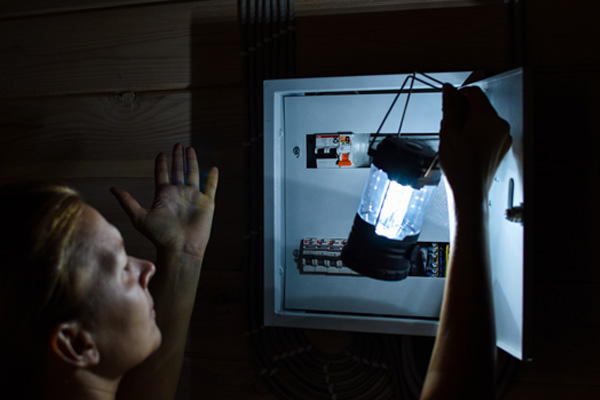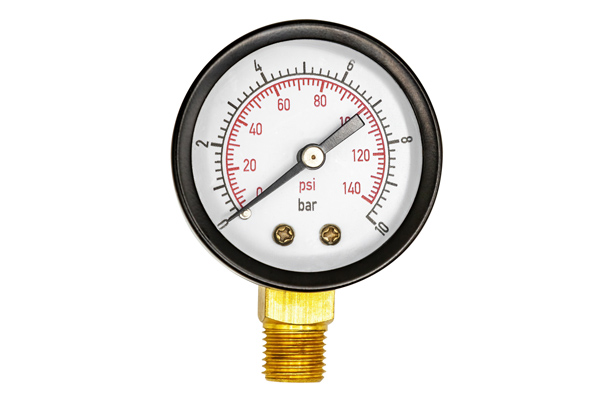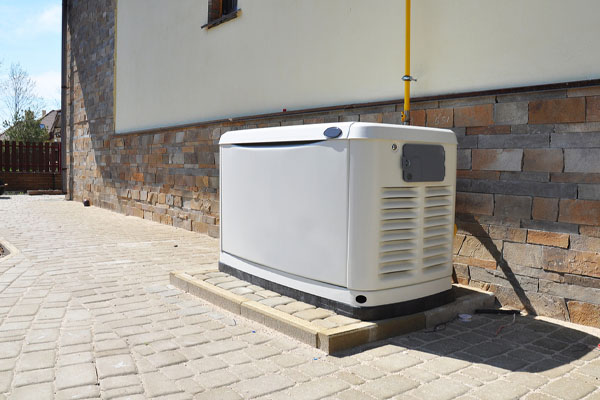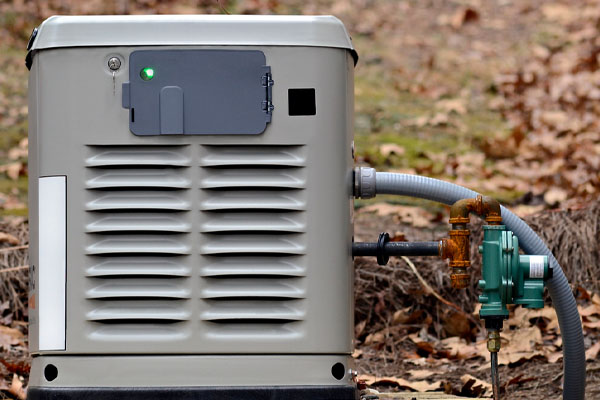
Standby generators are essential for ensuring uninterrupted power supply during outages. Nevertheless, as with any mechanical equipment, they occasionally encounter issues. A prevalent concern is their inability to initiate correctly. This article delves into ten typical reasons a standby generator won’t start. We will explore various causes, from fuel-related complications and battery troubles to defective parts and overlooked maintenance, offering insights into the root causes of generator startup failures.
Generator Won’t Start – Top Ten Causes of Generator Startup Issues
Contents
- 1 Generator Won’t Start – Top Ten Causes of Generator Startup Issues
- 1.1 1. Backup Generator Fuel-Related Challenges
- 1.2 2. Standby Generator Battery Issues
- 1.3 3. Control Panel Complications
- 1.4 4. Obstructions in Generator Fuel Lines
- 1.5 5. Malfunctioning Spark Plugs
- 1.6 6. Challenges with Whole-House Generator Air Filters
- 1.7 7. Standby Generator Coolant Level Issues
- 1.8 8. Outdated Software
- 1.9 9. Issues with Power Generator Starter Motor
- 1.10 10. Insufficient Backup Generator Maintenance
- 2 Strategies for Diagnosing and Averting Generator Failures
- 3 Call PFO Heating & Air Conditioning For All Of Your Standby Generator Needs
Here are the top ten reasons your standby generator might fail to start:
1. Backup Generator Fuel-Related Challenges

The heart of a generator’s functionality lies in its fuel, the vital energy source that powers its engine and enables electricity generation. Common fuel issues that can affect the performance or lead to a generator won’t start include:
- Low Fuel: Generators often fail to start or stop running due to low fuel levels. Regularly checking and refueling the tank, especially during long outages, is crucial for uninterrupted operation.
- Poor Fuel Quality: Using contaminated or low-quality fuel in generators can lead to issues like clogged filters and engine damage. It’s important to use high-quality fuel suitable for your generator and follow the manufacturer’s fuel recommendations.
- Fuel System Leaks: Leaks in the fuel system, caused by factors like damaged lines or worn seals, can waste fuel and pose safety hazards. Conducting frequent inspections and fixing any leaks promptly by replacing damaged parts and ensuring tight connections are essential for safe generator operation.
2. Standby Generator Battery Issues
The battery in a generator transforms chemical energy into electrical power using an electrochemical reaction. It is an independent power source, supplying the initial energy required for the generator’s operation.
Nonetheless, batteries can fail, often due to factors like:
- Age
- Neglected Maintenance
- Extreme Weather Conditions
If your generator won’t start, this may be the cause for this. Fortunately, battery issues are easy to fix. Call PFO Heating & Air Conditioning today!
3. Control Panel Complications

At the core of a generator’s functionality is the control panel, a central hub that facilitates the monitoring and managing of various operational aspects. It enables the activation and deactivation of the generator, tracks vital parameters like voltage and frequency, and allows for the adjustment of system settings. The control panel is also integral for safety, featuring circuit breakers and warning signals. It is pivotal in enabling users to efficiently handle and utilize their generators to fulfill their power requirements.
However, issues can arise with the control panel, potentially impacting the generator’s performance. These problems may include:
- Incorrect Configuration
- Misreading Indicators
- Inappropriate Adjustment
4. Obstructions in Generator Fuel Lines
Fuel lines are crucial in delivering fuel from the tank to the generator’s engine, ensuring continuous and stable fuel flow for combustion. Keeping these lines unobstructed is vital for the generator’s efficiency and consistent power supply.
Blockages in fuel lines, caused by sediment, debris, or accumulated contaminants, can significantly restrict fuel flow, leading to insufficient fuel supply and issues like decreased performance, engine misfires, power fluctuations, or even complete engine shutdown in severe cases.
5. Malfunctioning Spark Plugs
Spark plugs are tasked with igniting the fuel-air mixture in the engine’s cylinders. They produce an electrical spark essential for initiating the combustion process, which, in turn, drives the engine to create mechanical power and subsequently generate electricity.
However, spark plugs can encounter several issues, including fouling, wear and tear, and incorrect gap settings. Fouling happens when deposits build up on the spark plug, impairing its capacity to produce a robust spark. Wear and tear can diminish the spark plug’s ability to generate a strong spark. Incorrect gap settings between the spark plug electrodes can lead to engine misfires or ignition failure. If your generator won’t start, call PFO Heating & Air Conditioning today!
6. Challenges with Whole-House Generator Air Filters
Air filters prevent dirt, debris, and other contaminants from entering the engine’s combustion chamber. Ensuring a clean air intake protects the engine from potential damage and helps maintain its efficiency.
However, several common issues with air filters can impede a generator’s ability to start:
- Clogging: Dirt and debris can build up in the filter over time, leading to clogging. This restricts the flow of air to the engine.
- Excessive Dirt Build-Up: When too much dirt accumulates, the filter’s capability to cleanse the air effectively diminishes.
- Physical Damage: Filters with holes, tears, or other forms of damage can let unfiltered air pass into the engine.
These air filter problems can lead to an inadequate air supply for the engine, thus affecting the combustion process and making it difficult to start the generator.
7. Standby Generator Coolant Level Issues
Coolant is critical in managing the temperature of a generator’s engine. It absorbs the heat produced during the combustion process, preventing overheating. Maintaining appropriate coolant levels ensures peak engine performance, protects engine parts from damage, and extends the generator’s operational lifespan.
Low and high coolant levels can disrupt the normal functioning of a generator. Low coolant levels can result in the engine overheating. This accelerates wear and tear on engine components, potentially leading to complete engine breakdown. Excessively high coolant levels can create pressure build-up and coolant leaks within the system.
8. Outdated Software
In contemporary standby generators, the software is a crucial component, overseeing and orchestrating various operational facets. Its functionalities include:
- Monitoring system parameters
- Regulating power output
- Managing load distribution
- Implementing safety measures
Additionally, this software facilitates remote monitoring, diagnostics, and data analysis, significantly boosting the generator’s efficiency, reliability, and user-friendliness.
However, when the software becomes outdated, it can lead to startup failures due to compatibility complications, software malfunctions, or limited capabilities. This outdated software might not interact effectively with engine components or may be missing essential updates for peak performance.
9. Issues with Power Generator Starter Motor

The starter motor is crucial in kick-starting a generator’s combustion process. It draws electrical power from the battery to engage and spin the flywheel at high velocity. This action generates the momentum required for the engine to commence operation, ultimately leading to the production of electrical power by the generator.
Indications of a failing starter motor can be:
- Audible clicking
- Grinding noises
- Lack of response when turning the ignition
Starter motor failure in generators can stem from the wearing out of internal brushes, solenoid malfunctions, various electrical problems, or general mechanical failures. Moreover, regular wear and tear, insufficient maintenance, and broader issues within the generator’s electrical system can also significantly affect its breakdown.
10. Insufficient Backup Generator Maintenance
Consistent and thorough maintenance is key to maintaining a generator’s reliability and efficiency. Routine upkeep helps in early detection and resolution of potential problems, minimizes the likelihood of breakdowns when needed most, prolongs the generator’s lifespan, enhances fuel efficiency, and ensures the safety of both the generator and its operators.
However, overlooking regular maintenance can be a primary cause of generator start failures. This neglect allows issues to build up and deteriorate over time. Critical components such as spark plugs, fuel filters, and batteries may degrade if not properly maintained, leading to inefficient combustion or insufficient power supply.
Strategies for Diagnosing and Averting Generator Failures

Early detection of issues is crucial in preventing generator failures. Here are some effective strategies to troubleshoot and avert such issues:
- Engage in routine maintenance activities, including inspecting fuel and air filters, monitoring fluid levels, and evaluating the battery’s condition. Clean or replace parts when necessary.
- Ensure the generator is well-ventilated and stored in a dry environment.
- Be mindful of the generator’s capacity, avoiding overloading and evenly distributing loads.
- Regularly schedule professional maintenance checks and strictly follow the manufacturer’s recommended maintenance schedules and procedures.
Conclusion
Issues such as a generator won’t start often stem from lack of maintenance and improper use. Regular upkeep, routine checks, and prompt issue resolution can prevent these problems, ensuring the generator is ready to provide power when needed. Consistent maintenance makes a generator a reliable backup, offering security during outages or emergencies.
Call PFO Heating & Air Conditioning For All Of Your Standby Generator Needs
PFO Heating & Air Conditioning stands as a premier provider of generator installation and maintenance services in the Greater Princeton, NJ area. Our expertise extends beyond just installation; we specialize in generator replacements, repairs, and comprehensive maintenance. Our team comprises the finest service contractors, each meticulously trained in cutting-edge generator technologies and techniques.
When you choose PFO Heating & Air Conditioning, you’re not just getting a service; you’re gaining access to industry-leading expertise. Reach out to us online or give us a call to discuss whole-house generator installation and more. Our knowledgeable professionals are ready to address all your generator-related questions. Plus, we offer free, in-home estimates to ensure you get the best service tailored to your needs. Call PFO Heating & Air Conditioning today and learn more about the services we offer. We will be happy to answer all your questions and concerns. Call now!
Click here to contact us now or call us at (800) 253-9001 to find out more! Click the link to view our service area.

Related Articles:



